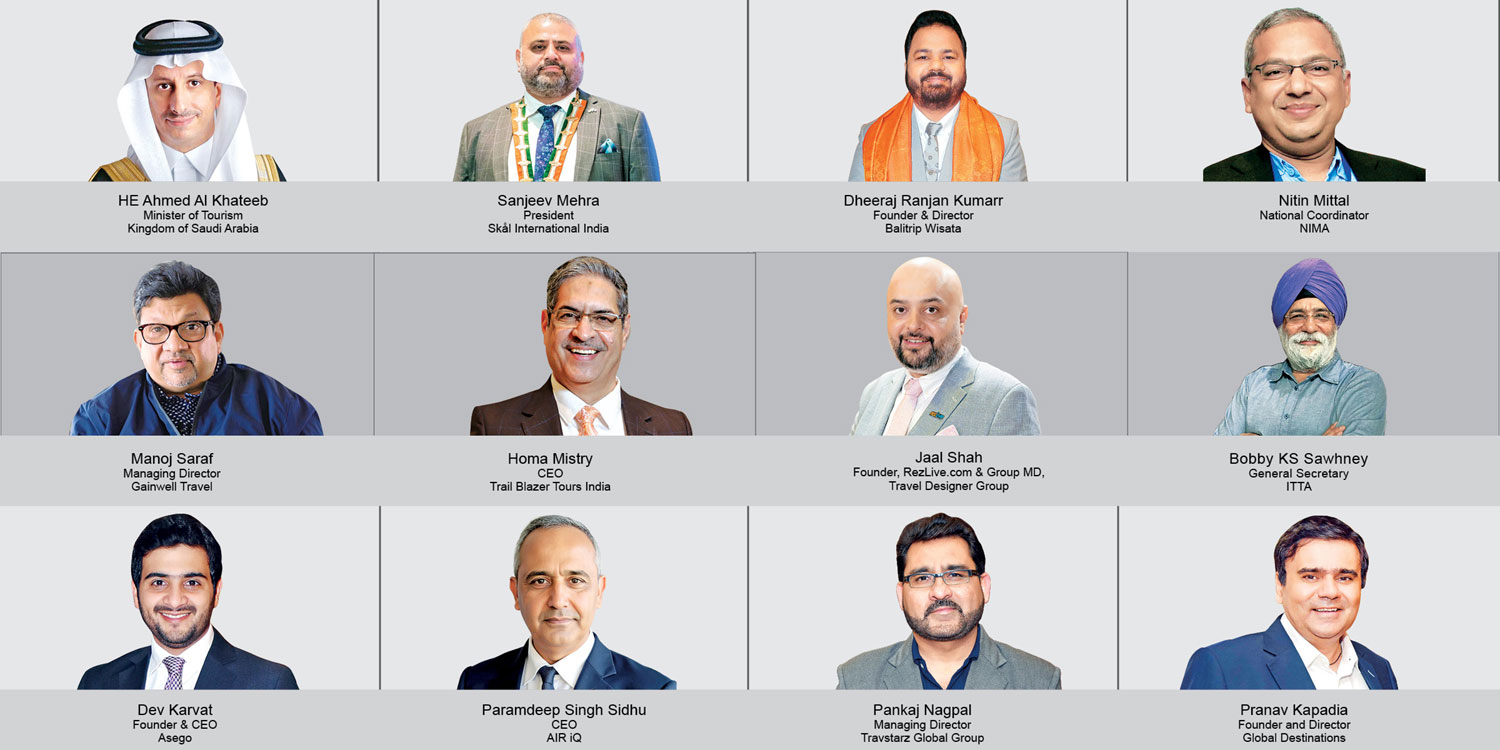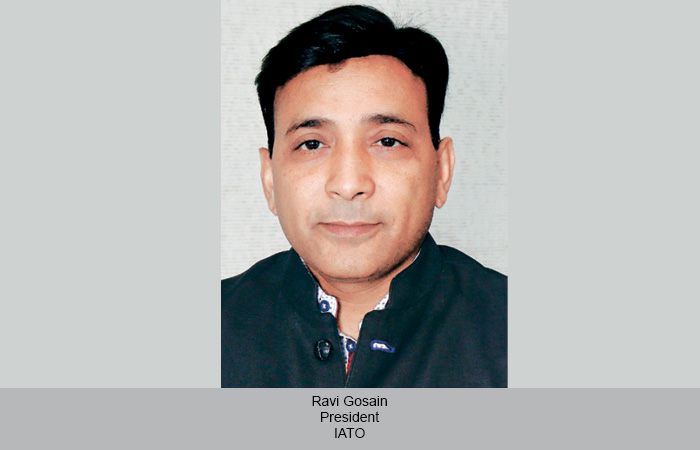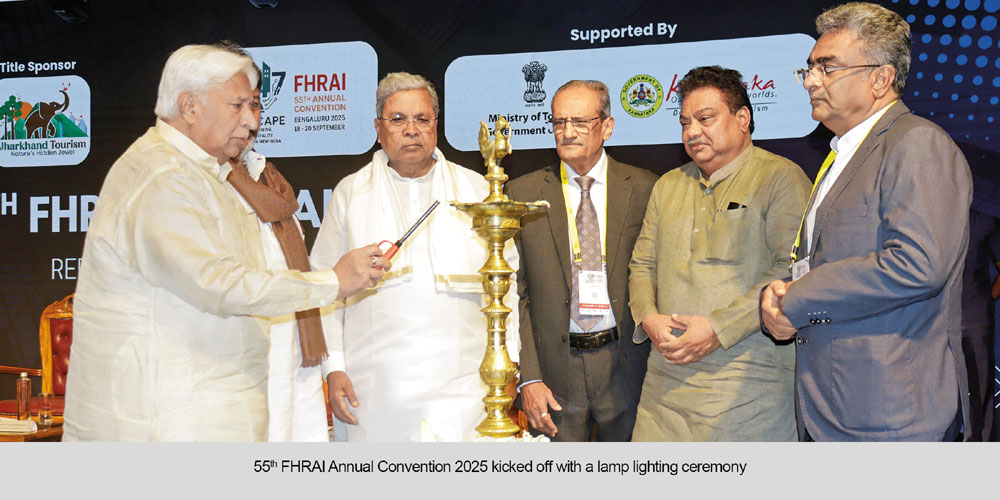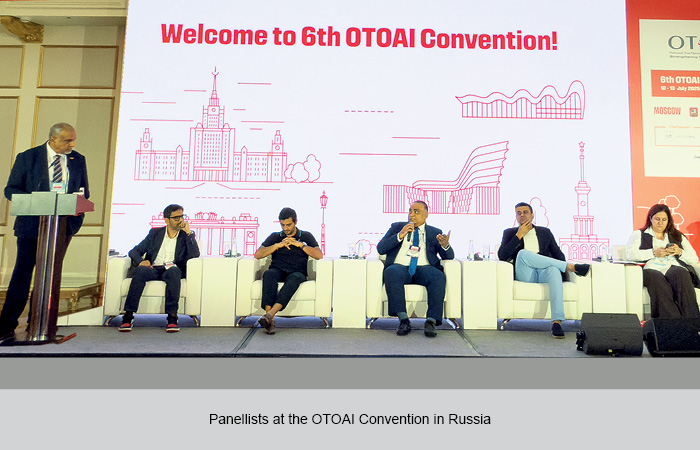Union Budget 2024 holds significant expectations for India’s travel and tourism sector. As the country aims for a target of US $1 trillion by 2047, industry experts have high hopes from the budget.
Rajiv Mehra, President, IATO
IATO wants the export status to be given to our industry like the IT industry. We want allocation of funds to the MOT so that they could participate in all major tourism events and start the MDA scheme, as it is much essential. Also, the allocation of funds is required for overseas promotions, consisting of electronic or print advertising, as well as for organising Fam trips for FTOs into India. The government must allocate `1,000 crore to the Ministry of Commerce to start a scheme like SEIS, which used to be given to tour operators earning foreign exchange for the country. Apart from that, we have GST-related issues concerning the GST Council.
Jyoti Mayal, President, TAAI
We expect increased budget allocation for overseas promotion and publicity that had been drastically reduced to Rs. 3 crore, down from Rs. 100 crore last fiscal. This Budget must focus on infrastructure; establishing new airports; rapid expansion in rail, road and waterways; development of religious circuits; MICE; wellness and hidden gems like Lakshadweep, simplifying visa requirements, reduction in ATF costs, more favourable GST rates and industry status.
Ajay Prakash, President, TAFI
The travel trade puts forth its wishlist every year before Union Budget and come the day, is invariably disappointed. This budget, we want revision and rationalisation of GST (the highest slab should not exceed 10 per cent and travel agents/tour operators should be eligible to claim setoff), ATF must be brought under GST to make airfares affordable, overseas promotion budget should be increased. A mandatory insurance must be launched to protect travellers against airline failure.
Pradeep Shetty, President, FHRAI
Granting infrastructure status to hotels and convention centres of project cost of `10 crore and above is essential for attracting investments and accelerating growth. We urge the abolition of the 18 per cent GST category for hotels with room rates above `7500, merging it with the 12 per cent GST category to boost domestic and inbound tourism. A national e-single window clearance system for hotels & restaurants through the HDPB can significantly reduce costs.
Kanwarjit Singh Sawhney, Honorary Secretary, ITTA
The allocation of funds to the tourism sector should be on infrastructure development including upgrading road transport, airports and railway networks to improve connectivity. It must be done for marketing and promotion, including enhanced digital marketing initiatives to reach out to wider audience and human resource development/ skill development for unskilled and skilled. These allocations can be adjusted based on specific needs and priorities.
Naveen Kundu, Managing Director, Ebixcash Travel Group
Increasing the budget for meetings and events under the ‘Meet in India’ initiative is not just an investment in event hosting but a strategic move to bolster India’s global standing and economic growth. We request the government to consider revising the budget allocation to ensure that ‘Meet in India’ continues to thrive and contributes to our national goals. Increasing the budget allocated to meetings and events can achieve several important objectives.
Riaz Munshi, President, OTOAI
A significant expectation is the reduction of GST rates on outbound tour packages. We are also looking for more rationalised Tax Collected at Source (TCS) policies. The current TCS rates can be burdensome for travellers and travel agencies alike. Moreover, it results in revenue loss for the government, as a sizeable portion of outbound travel business is conducted by overseas companies that do not contribute to the Indian economy.
Jagdeep Bhagat, National President, TIA
Industry status for tourism is long-due and should be attributed. Regulation and registration of agency operations must be streamlined. Outbound packaged tours should be exempted from TCS and GST refunds for inbound tourists be allowed. We are not against overseas promotions and support the urgent need for intensive marketing in overseas markets. We demand the need to rationalise the way it is spent. Sanctioning the marketing budget only to a few selected and preferred associations should be done away with.
Gajesh Girdhar, Founder & National Coordinator NIMA
We expect reduced GST rates and exemptions on event-related services or the govt can refund some percentage of GST amount to MICE companies for promoting India; refund of GST on shopping for international tourists; subsidies for MICE infrastructure development and financial support for modernising MICE facilities. Also, NIMA can support Govt to commercialise historical tourist places for doing better events during non-tourist hours. We request joint marketing initiatives to promote India’s MICE potential.
K Syama Raju, President, SIHRA
We urge the govt to consider a uniform GST rate of 5 per cent for all segments within the hospitality sector, including restaurants and small hotels. Govt support is required to get the entire industry and infrastructure status in tapping state employment potential. The govt must allocate more funds for skill development programs and work closely with the private sector to create job opportunities. Simplifying regulatory processes and reducing bureaucratic hurdles will significantly benefit our industry.
Compiled by TT Bureau
 TravTalk India Online Magazine
TravTalk India Online Magazine





